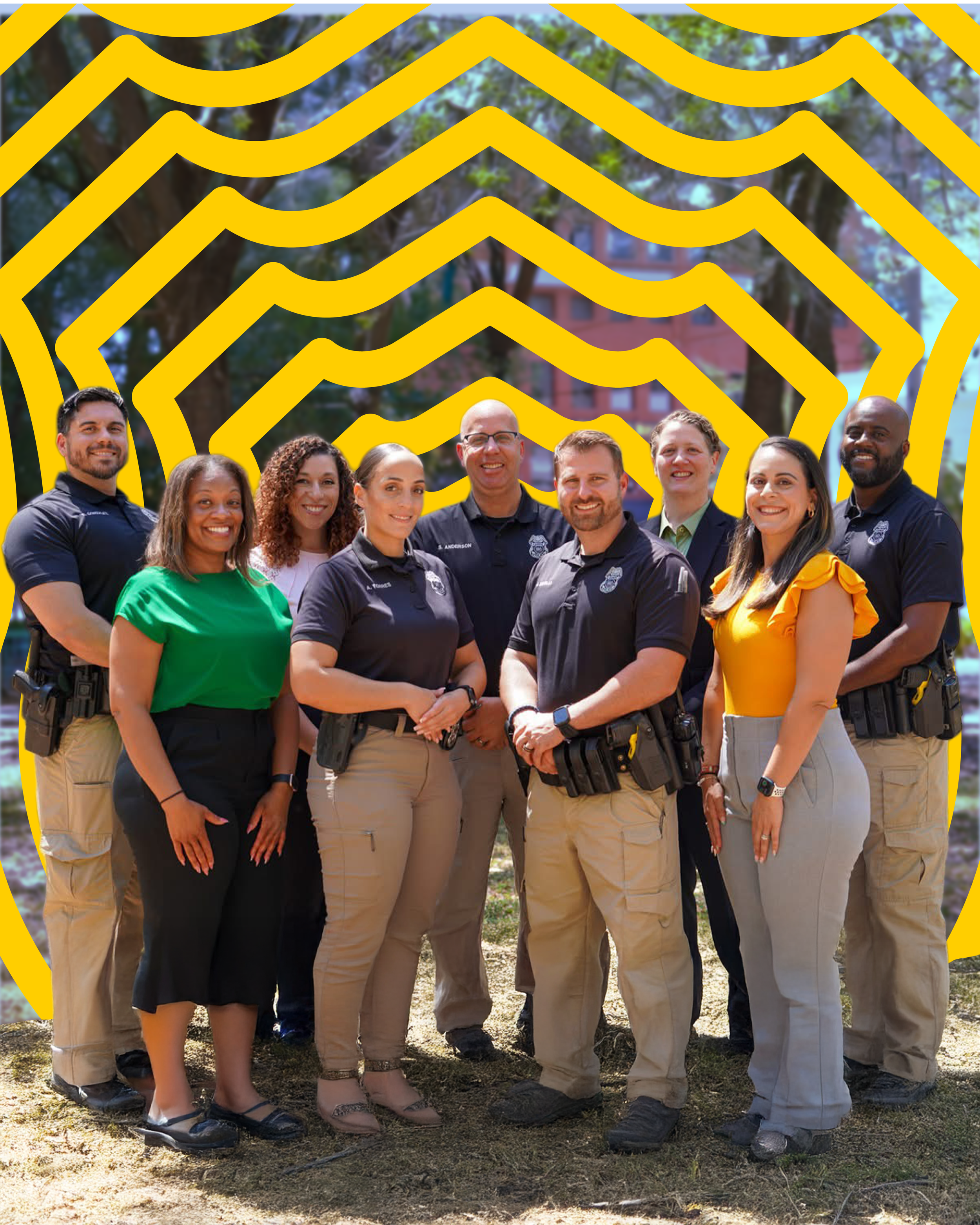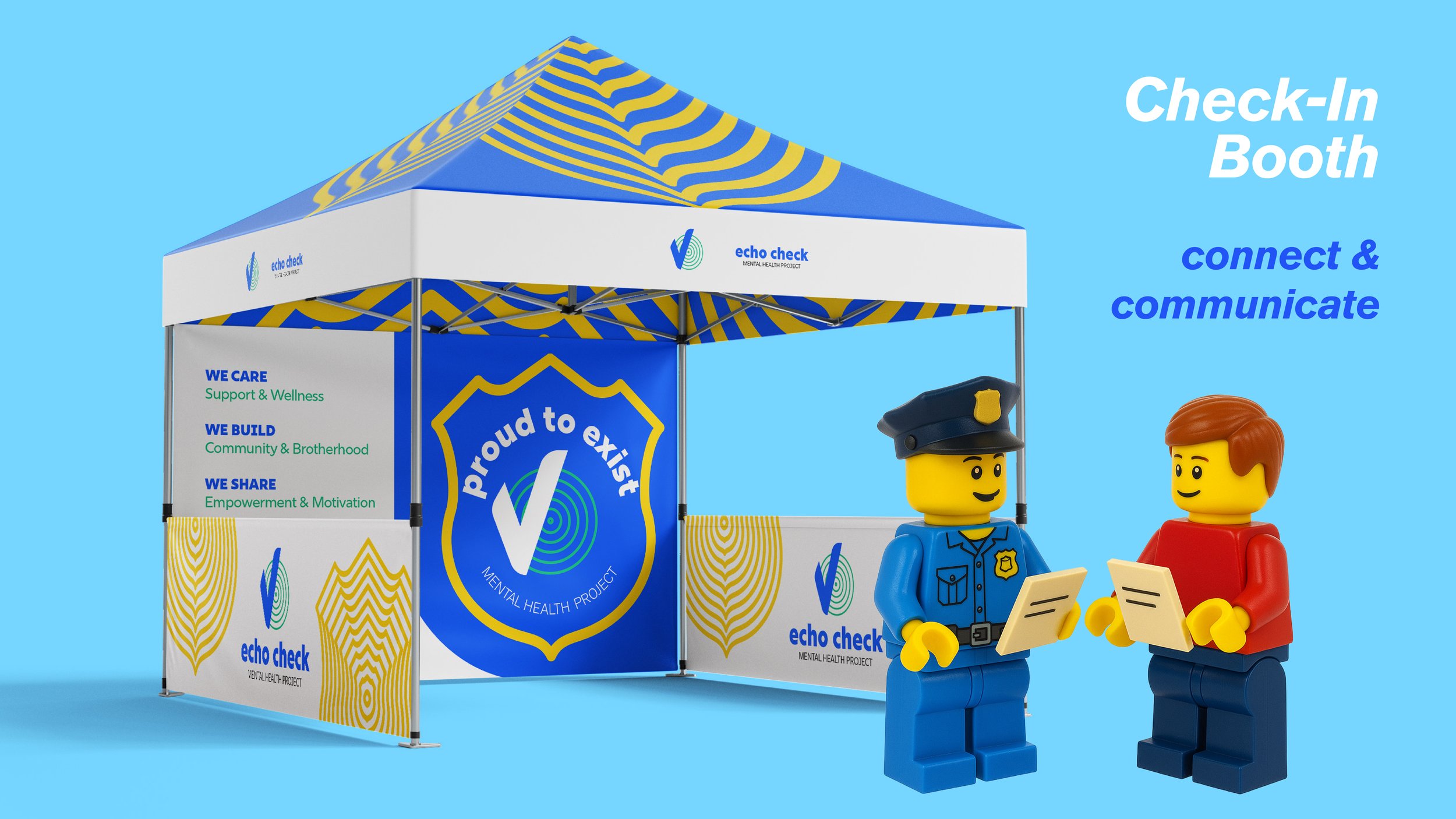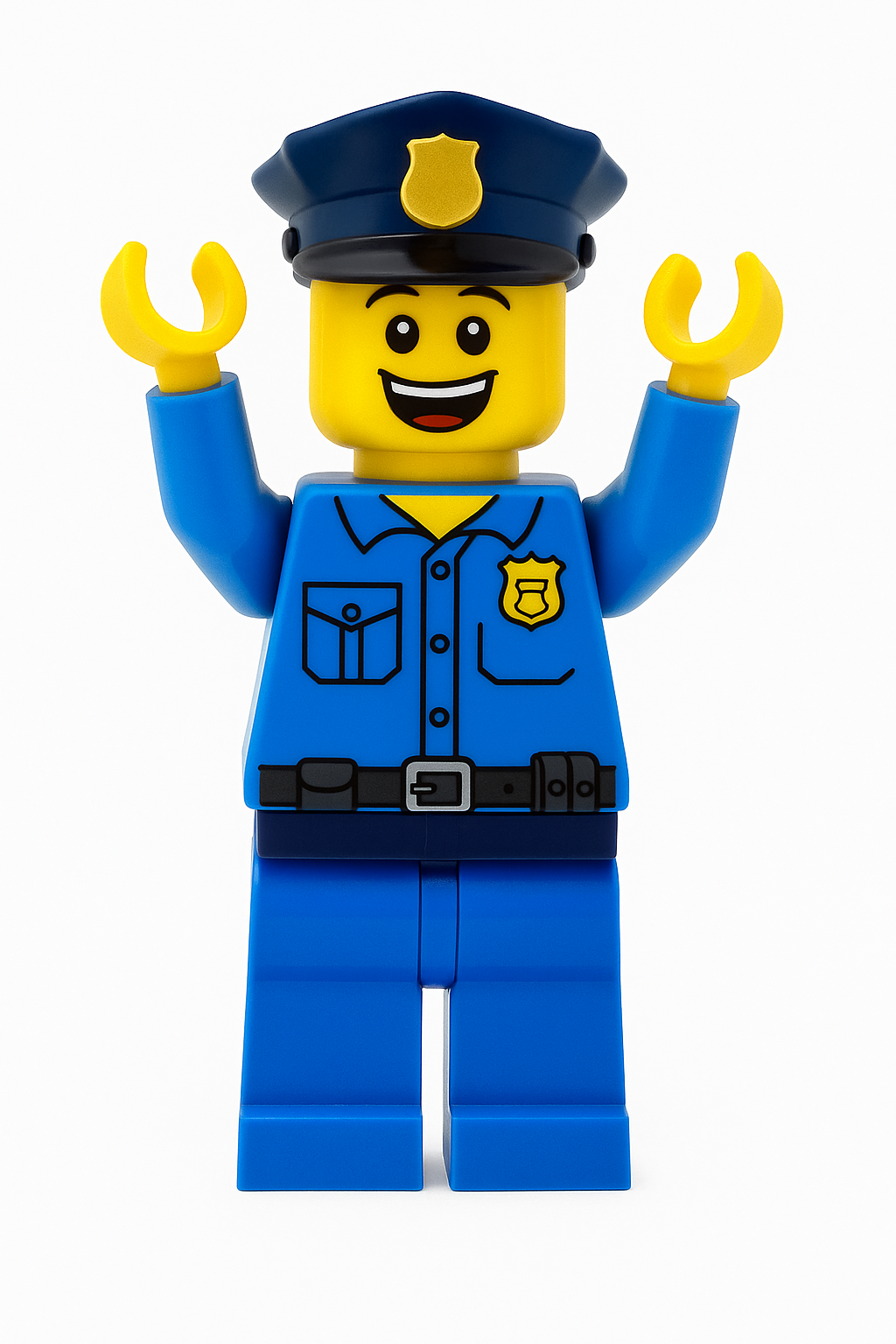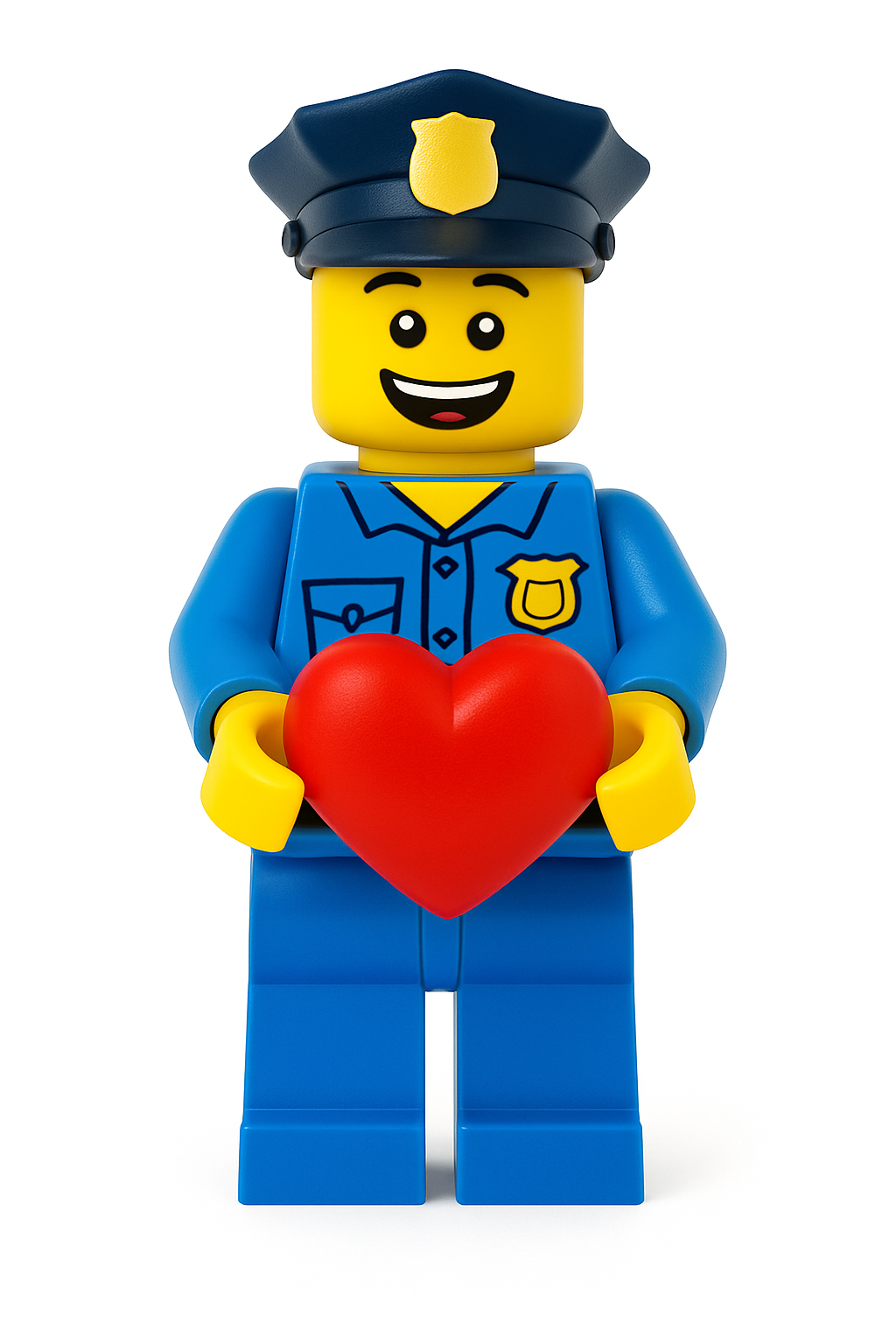Echo Check | Mental Health Campaign
Talking About Mental Health in Law Enforcement
My topic will focus on the Mental health and stability of Law Enforcement, stigmas around mental health and self-care within those units, and the public's view as an external factor. I know several police officers and heard many stories and personal insights, about all the good and bad that comes with the badge, so I would want to dive deep and see what can be done to tackle stigmas, stereotypes, and provide inclusive solutions that don’t pressure but rather support police as human beings, needing mental health help.
Defining PTSD & Mental Health in Law Enforcement
Mental health is a significant concern within the military and law enforcement officers, like police, affecting both service members and their families. Exposure to combat, deployments, everyday violence, crime, injuries, and more stressful events typically leads to conditions like PTSD, depression, anxiety, and many others. The military also faces challenges in ensuring access to mental health care and addressing barriers to help-seeking behavior. Similarly mental health challenges in law enforcement, these issues can impact an officer's performance, well-being. Addressing this crisis requires a multi-pronged approach, including promoting mental health awareness, providing comprehensive support systems, and dismantling stigmas associated with mental health. In both groups, mental stability and ptsd symptoms, when left untreated, can get intense to the point of suicide.
Defining Problem
Law enforcement officers face alarmingly high rates of PTSD, depression, and suicide due to constant exposure to traumatic events, stress, and public hostility. However, stigmas surrounding mental health within police culture prevent many from seeking help. Officers fear being perceived as weak, unfit for duty, or risking their career and reputation. Additionally, negative public perception—fueled by media and cultural narratives—worsens emotional fatigue and isolation.
Constraints
Cultural stigma in law enforcement discouraging vulnerability
Career consequences associated with admitting mental health challenges
Distrust of formal support systems due to confidentiality concerns
Hostile public sentiment, reducing community support
Lack of diverse, inclusive, and stigma-free resources tailored to law enforcement and their families
Objectives
To explore and develop non-pressuring, supportive, and inclusive solutions that promote mental health for law enforcement officers. The goal is to dismantle stigmas, educate communities, humanize the badge, and provide effective support systems that serve officers as individuals, without undermining their careers or identity.
Audience
Who is affected?
All officers that are active-duty and who experience some sort of mental distress, induced by PTSD, anxiety, or prolonged stresses from exposure to violent encounters
Officers that face hate from public
Officers that face or believe in stigmas about mental health problems and who refuse or scared to admit to therapy or admit they have issues
Age:
- From young recruits to retiring officersGender & identity:
- Male-dominated
- More so rare female officersPhysical/Cognitive attributes:
- Those with trauma-based disabilities
- Invisible injuries (e.g., TBI, PTSD)Situational factors:
- Exposure to violence
- Long shifts
- Family responsibilities
Education & training levels:
- Officers with varying levels of mental health literacyPolitical & philosophical views:
- Including both pro-policing and reform-driven perspectivesSocioeconomic background:
- Officers and families from different classes
- Different community experiences

Care Starts with Courage
Echo Check is a platform that breaks through barriers of assumptions and fears by showing and highlighting mental health and spreading positive messaging. And also, filling the gap for awareness between the users, like law enforcement officials and first responders, and the established/provided mental services that are in place for them to take advantage of.












1.
Echo Wall
Located in Law Enforcement departments and offices, and First Responder units. Users can walk by it and notice, or read the letters of gratitude or encouragement. The board can include letters/notes specific to the station (Atlanta PD in my example) from the letters they already have, and form community events, and from the workers and their families.
User Feelings: calms anxiety and stress, makes the user feel needed, loved by the community they serve.
Transition Further: QR code
2.
@echocheckproject
Provides the same/similar content from the walls - but, because it is a universal (US) account, the letters/notes can come from anywhere.
User Feelings: very similar, reinforcing the feel of appreciation and relief in anxiety
3.
Echo Check Podcast
Provides community outreach and reinforces visual and personal connections, focused on talking about mental health, talking about experiences and feedback about mental health services the podcast guests used and how these services helped them.
User Feelings: breaking down barriers and stigmas around getting fired/scolded, or being seen as weak, building confidence and filling communication gap for users to actually reach out to the mental services built for them.
Transition Further: Invitations to community events
4.
Part of Community
At these events, an informational booth, a Check-In Booth, will be present, with different types of handouts that promote support and mental help resources that are available. These events could be charity/fundraising events or community events in local cities. As a physical space, this could provide opportunities for people to connect and socialize.
User Feelings: Socialization and speaking about these resources with another person can also alleviate worries and raise confidence in actually reaching out for help.
Reinforcement: Continues Engagement with social media account, but now, also going through therapy or getting mental health support from services that were promoted by echo check.
5.
Echo Check Care Box
ECCBox
Echo Check Care Box (ECCBox) - as an additional outlet, developed for people outside of the system where they cannot interact with the board (expected starting point for most users) or do not need the services themselves and would want to give a gentle nudge to the person who probably does need those services. Or simply to show their gratitude or appreciation. The ECCBox is essentially a self-care box that is targeted toward Law Enforcement and First Responders, featuring things like tactical gear, partnered with reputable brands, self-care items, or edible goods, which users/customers can pick based on the person they know and their preferences. Examples could be (based on people I know): jerky, beard care, tactical gear, firearm necessities, coffee, camping gear, cigars, and related stuff.
User Feelings 1: The person gifting feels like they are helping their loved one out, and by buying the box, all proceeds are donated to their local police station's mental health services.
User Feelings 2: The person who got the gift, a potential Police officer, is now aware of the echo check & most likely will subscribe to the social media, from which they go to step 2 and so on. The design of the box is led by branding and also has handwritten inspirational/encouraging/caring notes on the sides, so it is a little tribute to all the notes written by people, and also adds a personal touch and a warming feel to the person who gets the box.

Echo Check Solutions
Stigma Around Seeking Help & Fear of Career Consequences
Echo Check breaks stigmas and fears by showing actual people who are in policing and use mental health services, and who are potentially someones coworkers, encouraging importance of mental health and building confidence.
Cultural Pressure to Be Resilient
Echo Check leans into supportiveness, positive encouragement, importance of mental health in work through stories of police officers, who talk about these services and their experiences.
Negative Public Perception & Hostility on Social Media
Echo Check brings out the side of community that values and appreciates law enforcement and first responders, breaking the idea of negativity in physical spaces. In virtual spaces, using “hero” stories and posts, will also break the stream of the media, which, shown in user’s socials—will create a different media perception for them.
Isolation from Community
Bringing a physical experience beyond social media, will bring opportunities to socialize, communicate, with fellow officers and their community, potentially representatives from mental help services. In addition with the Echo Wall & Echo Check Care Box, these experiences come together to highlight community involvement, showing the users that they’re needed, valued, and not alone.


